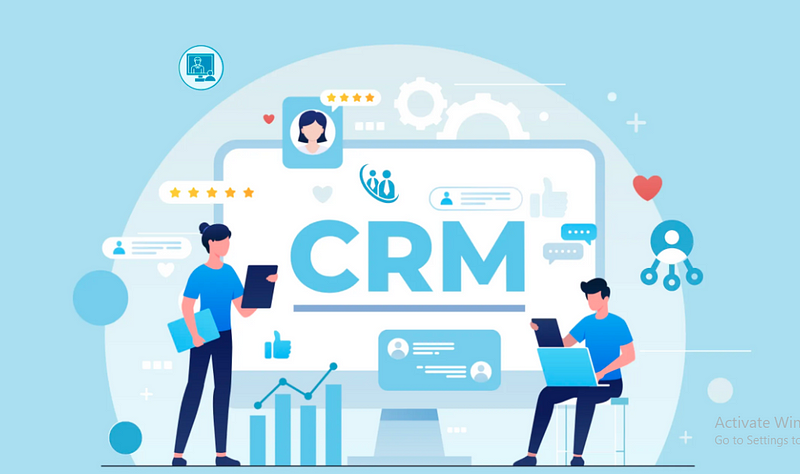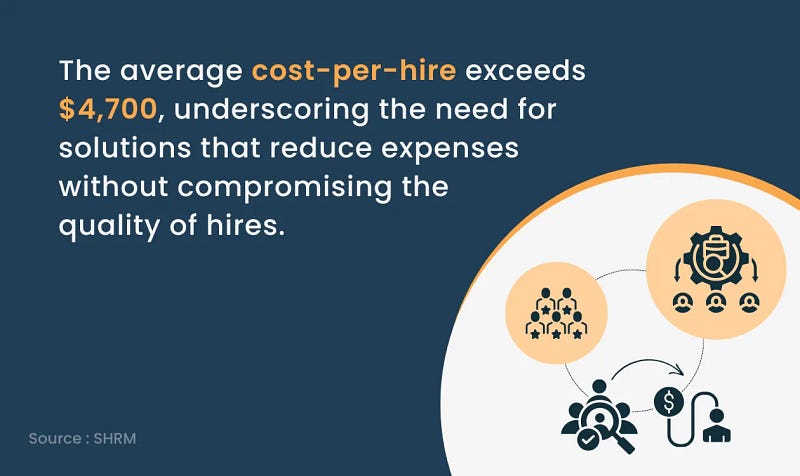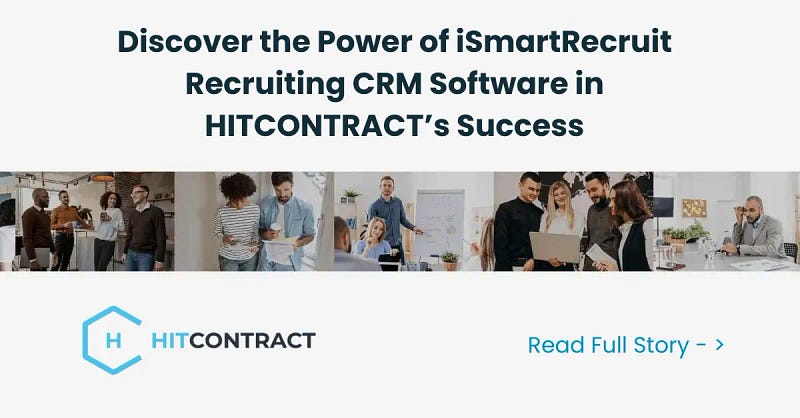
Recruiting is a big challenge. It involves handling countless resumes, keeping up with candidate communications, and dealing with tight schedules. This process often stresses recruiters, leading to missed chances and delays in hiring the best candidates. So, how can you make this messy workflow more transparent and efficient?
Recruiting CRM (Candidate Relationship Management) software provides the structure and features to tackle these challenges effectively. A report by SkyQuestt shows that the global recruitment software market was worth USD 2.53 billion in 2022 and is expected to grow to USD 5.89 billion by 2031, with an annual growth rate of 9.86%. This significant increase shows that more businesses use recruitment tools to boost efficiency, simplify processes, and stay competitive in the changing hiring environment.
However, not all Recruiting CRM Systems are the same. Let’s go over the key features of Recruiting CRM you should look for so you can choose a tool that improves your recruitment strategy.
10 Innovative Recruiting CRM Features You Shouldn’t Miss
Explore 10 must-have Recruiting CRM features to boost recruiting efficiency and streamline candidate management. These features help you hire faster and wiser.
1. AI-Powered Talent Matching
AI-powered talent matching is key to modern hiring, providing unmatched accuracy and speed. This tool uses machine learning to examine various data, like resumes, job descriptions, skills, and cultural traits, to find the best match for each job. It doesn’t just look at active job seekers but also finds passive candidates — people who aren’t actively looking for a job but might be perfect for the role. By automating this traditionally time-consuming task, recruiters can focus more on building connections and making wise decisions.
2. Immersive Job Seeker Portals
The time when candidates had no idea what happened after they submitted their applications. Modern job portals offer a much better experience, giving clear updates and keeping candidates involved during the hiring process. These portals let applicants see the current status of their applications, get personalised job suggestions, and use a simple, attractive dashboard. Some even come with helpful tools, like advice on improving resumes or getting ready for interviews.
3. Hyper-Customised Candidate Engagement
In today’s job market, where candidates have more options, generic messages no longer work. Hyper-customised candidate engagement focuses on creating meaningful and personalised interactions throughout the hiring process. By using candidate data — like career goals, past work experience, and behaviour patterns — CRM systems help recruiters send tailored messages, follow-ups, and updates. Whether it’s a congratulatory note for moving to the next round or a job suggestion that fits their profile, candidates feel appreciated and recognised.
4. Full-Featured Client Self-Service Portal
In collaborative hiring, transparency and quick communication are crucial for success. A complete client self-service portal bridges the gap between recruiters and their clients by offering a platform where clients can track hiring progress, look at top candidates, and give feedback immediately. Portals remove the need for constant emails or phone calls, making decisions faster and increasing efficiency. Advanced portals also include analytics features, enabling clients to monitor recruitment metrics such as time-to-hire and candidate quality.
5. Intelligent Candidate Engagement Chatbots
Hiring can be a 24/7 job, especially in global talent markets. Intelligent chatbots for engaging with candidates make sure they get quick answers to their questions, no matter the time zone. These AI-powered recruitment chatbots can do many things, like answering common questions, helping candidates apply, setting up interviews, and sending reminders. By handling repetitive tasks, chatbots lighten the load for recruiters and ensure candidates feel supported at every step.
6. Asynchronous Video Interviews
Asynchronous video interviews are changing how recruiters evaluate candidates by offering more flexibility and ease. Candidates can record their answers to set questions whenever convenient, and recruiters can watch these videos at their own pace. It removes the hassle of trying to match schedules, especially when dealing with different time zones, and speeds up the first stage of the hiring process. Modern platforms also provide tools like automatic transcriptions, keyword analysis, and emotion detection, helping recruiters make better decisions.
7. Diversity-Driven Candidate Screening
Supporting diversity, equity, and inclusion (DEI) is now more than just a moral duty — it’s a must for businesses. Diversity-driven candidate screening features are designed to help organisations achieve their DEI goals by identifying and prioritising underrepresented talent. These recruiting CRM features reduce hidden biases by focusing purely on skills, experience, and potential, not personal details like age, gender, or background. They can anonymise resumes, highlight diverse talent pools, and ensure equitable hiring practices.
8. Recruiter Efficiency Dashboards
Making data-based decisions is crucial for successful hiring, and recruiter efficiency dashboards give the information needed to do well. These dashboards show a complete picture of significant numbers, like how long it takes to fill a job, the hiring process, and how well each recruiter is doing. With customisable interfaces, recruiters can prioritise tasks, identify bottlenecks, and track the success of various hiring strategies. Updates in real-time mean teams can quickly adapt to changes, and predictive analytics help them prepare for what’s needed in the future.
9. Gamified Referral Programs
Employee referrals are a great way to find top-notch candidates, and adding gamification makes it even better. Gamified referral programs use points, leaderboards, and rewards to make the process more enjoyable and interactive. Employees are encouraged to get involved, creating a fun and competitive atmosphere around hiring. This program increases the number of referrals and improves quality, as employees are more likely to suggest people who fit well with the company’s culture. Gamification turns recruitment into team activity, building stronger employee connections and making hiring more successful.
10. Export Formatted Resume
Consistency and professionalism are crucial when presenting candidates to clients or internal stakeholders. The export formatted resume feature automates the creation of polished, standardised resumes directly from candidate profiles. With customisable templates, recruiters can ensure that every resume aligns with the organisation’s branding and client expectations. This recruiting CRM feature eliminates manual formatting, saving time and ensuring accuracy. Whether it’s for client presentations or internal reviews, formatted resumes leave a lasting impression and add a layer of sophistication to the recruitment process.
Before jumping into action, you can look into more features of iSmartRecruit recruiting CRM or check deep dive in the recruiting CRM guide for 2025.
Why iSmartRecruit is a Standout Recruiting CRM Software
iSmartRecruit is used and trusted by thousands of recruitment experts in over 70 countries, serving various industries and needs. Its customer-first approach makes it suitable for both small agencies and big companies, helping them solve their specific recruitment challenges effectively.
What sets iSmartRecruit apart is its ability to combine simplicity with powerful features, making complex tasks easier while remaining user-friendly. Focusing on innovation and adapting to local needs meets today’s requirements and helps recruiters stay ready for future trends, making it a reliable partner in a competitive field.
Conclusion
Choosing the right recruiting CRM software is about ticking boxes and finding a tool that fits your hiring needs and solves your problems. Look for features like managing candidates and contacts, automating tasks, and building a talent pool. With the proper selection, you can help your team to attract, engage, and hire the best talent quickly. Remember, the right CRM isn’t just a tool, it’s a key part of your hiring success.
Originally published at https://www.ismartrecruit.com.




